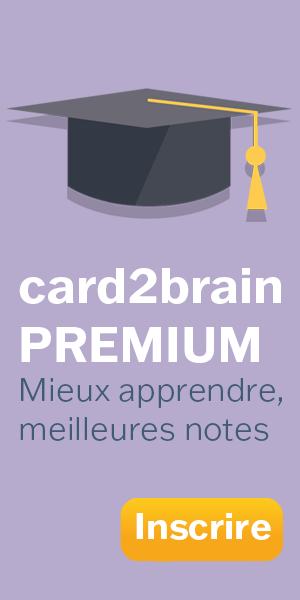Business Ethics
summary flashcards
summary flashcards
Kartei Details
| Karten | 166 |
|---|---|
| Sprache | English |
| Kategorie | Religion/Ethik |
| Stufe | Universität |
| Erstellt / Aktualisiert | 04.01.2020 / 16.01.2025 |
| Weblink |
https://card2brain.ch/cards/20200104_business_ethics
|
| Einbinden |
<iframe src="https://card2brain.ch/box/20200104_business_ethics/embed" width="780" height="150" scrolling="no" frameborder="0"></iframe>
|
What is Business Ethics?
Compromises organizational principles, values, and norms that may originate from individuals, organizational statements, or from the legal system that primarily guide individual and group behavior in business.
Morals
a person's personal philosophies about what is right or wrong
Principles
specific and pervasive (weit verbreitet) boundaries for behavior that should not be violated
Values
enduring beliefs and ideals that are socially enforced
1960s
Consumers' Bill of Rights (JFK)
right to safety, right to be informed, right to choose, right to be heard
1970s
Corporate social responsibility
an organization's obligation to maximize its positive impact on stakeholders and minimize its negative impact
1980s
Defense Industry Initiative on Business Ethics and Conduct
to guide corporate support for ethical conduct
1990s
Federal Sentencing Guidelines for Organizations (FSGO)
set the tone for organizational ethical compliance programs
rewarding organizations for taking action to prevent misconduct
2000s
Sarbanes-Oxley Act
To address a loss of confidence in financial reporting and corporate ethics
2000s
Dodd-Fran Wall Street Reform and Consumer Protection Act
to address lingering issues related to the financial crisis
Ethical culture
is acceptable behavior as defined by the company and industry
Leads to employee commitment and trust, investor loyalty and trust, customer satisfaction and trust, which all leads to profits
Corporate social responsibility
an organization's obligation to maximize its positive impact on stakeholders and to minimize its negative impact
States Business Ethics has gone through
Theological discussion --> recognition of social issues --> field of study
Consumerism
Activities undertaken by independent individuals, and groups to protect their rights as consumers
Power of the stakeholders
They can withdraw valuable resources
Primary stakeholders
continued association is necessary for the firm's survival
employees, customers, investors, stockholders, governments, communities that provide infrastructure
Secondary stakeholders
do not engage in business and are not essential for survival
media, trade associations, special-interest groups
Stakeholder interaction model
there are two-way relationships between the firm and a host of stakeholders
Stakeholder Orientation
I. generation of data about stakeholder groups and assessment of the effects on these groups
II. distribution of the information
III. responsiveness to this information
--> the degree to which a firm understands, and addresses stakeholder demands
4 levels of social responsibility
economic, legal, ethical, philanthropic (giving back to society)
Corporate citizenship
expresses the extent to which an organization meets the 4 levels of social responsibility
Reputation
one of an organization's greatest intangible assets
Corporate governance
involves the development of formal systems of accountability (how closely workplace decisions are aligned with a firm's direction and compliance with ethics and legislations), oversight (checks and balances that limit opportunities to deviate from policies etc.), and control (auditing and improving decisions and actions)
strong governance removes the opportunity for employees to make unethical decisions
6 steps in utilizing the stakeholder framework to manage responsibility and business ethics
1 assessing the corporate culture
2 identifying stakeholder groups
3 identifying stakeholder issues
4 assessing organizational commitment to social responsibility
5 identifying resources and determining urgency
6 gaining stakeholder feedback
Ethical issue
a situation involving a group, a problem, or an opportunity that requires thought, discussion, or investigation before a decision can be made.
requires an individual, group, or organization to choose among several actions that must be evaluated as right or wrong, ethical or unethical.
Integrity
being whole, sound, and in an unimpaired condition
Org: uncompromising adherence to ethical values
Honesty
truthfulness or trustworthiness
Example for issue related to honesty
business is regarded as a "game" governed by its own rules rather than by those of society
Fairness
Equality, reciprocity (giving and receiving), optimization
The glue that hold business together
Integrity, Honesty, Fairness
Ethical dilemma
a problem, situation, or opportunity that requires an individual, group, or organization to choose among several actions that have negative outcomes.
Commission lying
creating a perception or belief by words that intentionally deceive (täuschen) the receiver of the message
Omission lying
intentionally not informing others of any differences, problems, safety, warnings, or negative issues related to the product or company that significantly affects awareness, intention, or behavior.
Conflict of interest
when an individual must choose whether to advance his or her own interests, those of the organization, or those of some other group
Bribery
the practice of offering something in order to gain an illicit advantage
active, passive, facilitation payments
3 kinds of Hacking
is one of the top methods for obtaining trade secrets
System hacking (attacker already has access to the account)
Remote hacking (remotely trying to penetrate a computer system via the internet)
Physical hacking (agent personally enters facility)
Social Engineering
a popular method of obtaining valuable corporate information
Shoulder surfing
password guessing
Dumpster diving
once trash is discarded onto a public street or alley, it is considered fair game
whacking
wireless hacking
phone eavesdropping
another tool for CI agents










